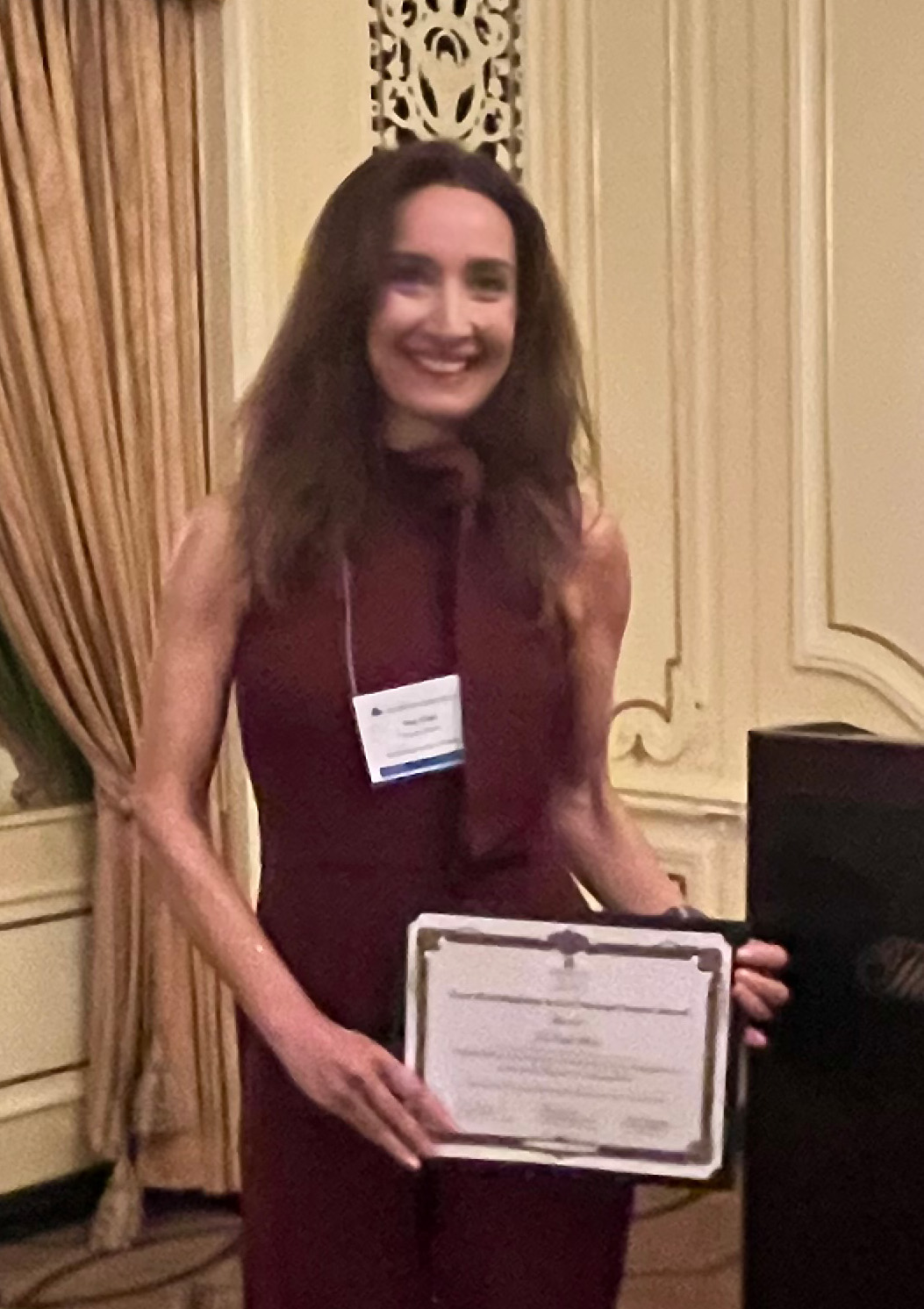Spotlight On: Naz Onel
 Galloway, N.J. —Artificial Intelligence (AI) continues to be a driving force in news headlines and
technology almost daily. This type of simulation is not going anywhere anytime soon,
and one Stockton professor's research on AI as it relates to consumer behavior and
sustainability recently won first place for the Societal Impact Award at the MBAA
International Conference in Chicago.
Galloway, N.J. —Artificial Intelligence (AI) continues to be a driving force in news headlines and
technology almost daily. This type of simulation is not going anywhere anytime soon,
and one Stockton professor's research on AI as it relates to consumer behavior and
sustainability recently won first place for the Societal Impact Award at the MBAA
International Conference in Chicago.
Naz Onel, associate professor of Business Administration at Stockton, shares why this research is so important and the significance of receiving this type of award on an international level.
Can you talk a little bit about why this ongoing research is important?
This ongoing research is crucial as it delves into AI's pivotal role in driving sustainable living. It provides a comprehensive perspective on how AI can transform consumer behavior toward sustainability.
Despite the rapid expansion of research at the intersection of AI and sustainability, there remains a gap in understanding how these domains intersect from a consumer standpoint. This study scrutinizes AI's influence on consumer behavior, its potential to foster sustainable choices, and its capacity to bridge the gap between intention and action.
This study also explores the utilization of AI in promoting sustainable living through a systemic lens that acknowledges macro-environmental influences on consumer decisions. It aims to address the "green gap," where consumers' sustainability related attitudes don't align with their behavior, by examining how sustainable AI can bridge this divide. Additionally, the study investigates predictors of consumer adoption of AI technologies for sustainability and proposes an integrated framework to comprehend this process.
From a broader perspective, sustainable AI involves the development, deployment and utilization of AI in a manner that minimizes negative environmental and social impacts while fostering long-term benefits. This approach aims to balance technological progress with ethical, social and environmental considerations to ensure a positive and enduring impact on both present and future generations.
How do you feel this recognition elevates your work at Stockton?
Being recognized for my research on AI's role in promoting sustainable living is immensely gratifying. It underscores the relevance of my teaching and research areas, focusing on business sustainability, consumer behavior, and sustainability marketing. The intersection of AI and sustainability addresses contemporary social, environmental and economic challenges, advancing knowledge in this vital area. This recognition highlights Stockton's focus on social, environmental, and economic sustainability and emphasizes the importance of integrating cutting-edge research into our educational curriculum and institutional initiatives. As Stockton strengthens its position in the region and beyond, this recognition reinforces our reputation as a hub for innovative research and thought leadership in business sustainability, driving meaningful change within our community and elsewhere.
🔍 RELATED STORY:
Onel Presents AI Research at International Conference in 2023
What does the Societal Impact Award mean/signify?
The MBAA International is a high quality, high value, multidisciplinary gathering of leaders from around the world with more than a half-century of history since its inception in 1964. Committed to presenting and exchanging valuable research findings and effective pedagogy, the conference serves as a platform for multidisciplinary collaboration and innovation. As part of the conference's formal organization, the International Society of Marketing (ISM) hosts the Societal Impact Award, recognizing the significant influence business schools can have on society. Societal impact refers to how a business school's mission and strategic plan guide actions that positively influence society – at local, regional, national, or international levels, which is highlighted by the AACSB Business Accreditation Standards. This competition strives to recognize and honor outstanding research from faculty who have demonstrated excellence in the area of societal impact. At the 2024 MBAA/ISM Spring Conference in Chicago, the research I'm leading the international team on was selected as one of three finalists for the Societal Impact Award. Following rigorous evaluation by reviewers, all three finalists presented their research papers during the dedicated Societal Impact track session. A panel of judges selected the winner and two runners-up at the session, where the research I presented was awarded first place.
How did you feel when you learned you won first place?
Winning first place was truly an honor, especially considering the caliber of research presented by all the finalists. Each finalist produced exceptional work with significant impact, so to be singled out for this recognition was incredibly gratifying. It was an exhilarating moment, knowing that my research had resonated with the judges and was acknowledged for its contribution. This acknowledgment validated the effort and dedication I invested in this area of research, igniting a sense of enthusiasm and motivation for my future endeavors in this field.
Reported by Mandee McCullough
Photo submitted


